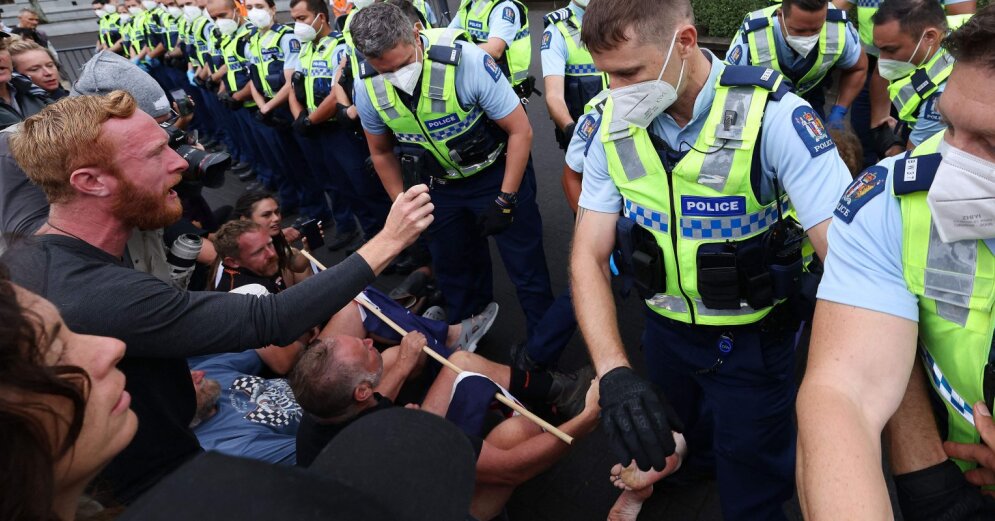Content will continue after advertising
Advertising
–
Activists of the protests launched on Tuesday chanted to the accompaniment of Maori dance and shouted “Hold the line” when police arrived to demolish their cloak on the Parliament lawn.
Police did not address the protests on Tuesday and Wednesday, but warned the crowd of about 150 protesters through loudspeakers on Thursday morning that they would be detained if they did not leave.
Demonstrators beat and punched police officers, shouting “This is not democracy”, “be ashamed” and ” cancel [vakcīnu] mandate”.
Streets close to New Zealand’s parliament on Tuesday began to be blocked by hundreds of trucks and caravans whose drivers protested Covid-19 restrictions and vaccination, inspired by similar protests in Canada.
24 hours after the protests began, many of these cars left, but more radical activists remained, vowing to stay with Parliament “as long as it takes”.
Wellington City Council announced that traffic police will begin imposing fines on protesters blocking streets with cars.
New Zealand vice premier Grant Robertson said the patience of Wellington residents was starting to run out and called on police to take action.
“Streets have been blocked in the city, businesses had to be closed, people feel threatened and intimidated by some protesters,” the vice premier told New Zealand Radio before the start of the police operation.
In New Zealand, vaccination against Covid-19 is mandatory for workers in known sectors, including healthcare, police, education and defence.
The Covid-19 certificate system is also in place and people must show them to enter restaurants, sporting events and church services. They are not in demand in public transport, supermarkets, schools and in the reception of Health Services.
–

